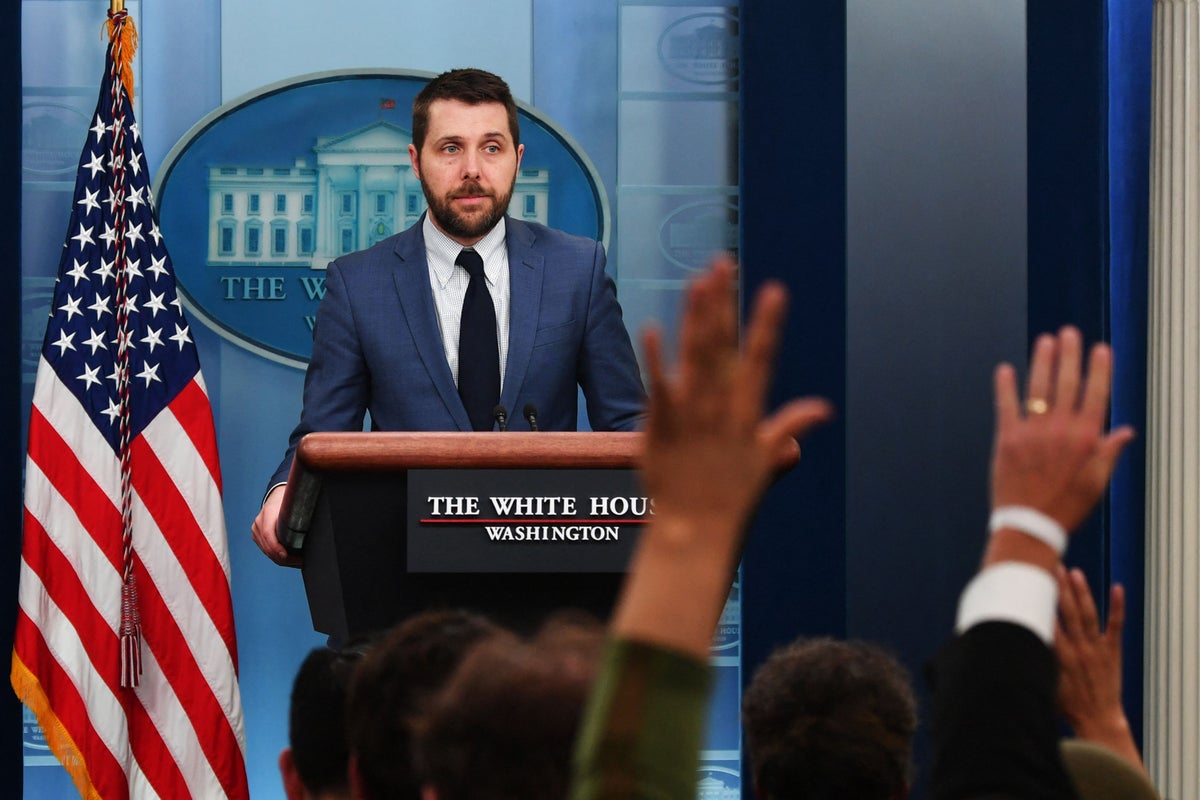
The White House is pushing back on predictions of economic storms on the horizon even as the head of one of the largest banks in the US said tightening monetary policy and pressures from Russia’s invasion of Ukraine could produce a “hurricane” in the coming months.
JPMorgan Chase CEO Jamie Dimon on Wednesday said just such a cyclonic storm is “right out there down the road” and headed toward the US, at a conference sponsored by AllianceBernstein Holdings.
“We don’t know if it’s a minor one or Superstorm Sandy. You better brace yourself,” he said.
Mr Dimon had said “storm clouds” were looming over the US economy at his employer’s investor day, but he also said it was “kind of sunny” because the Federal Reserve was starting to work to rein in inflation rates that have reached levels not seen since the 1980s.
Another economic indicator that bodes poorly for America’s economic prospects is the price of gasoline, which on Thursday hit a record high of $4.715 per gallon.
But White House National Economic Council Director Brian Deese painted a far rosier picture of America’s economic condition at a press briefing on Tuesday.
Mr Deese, who spoke as part of a coordinated effort to highlight the Biden administration’s focus on addressing inflation, said President Joe Biden understands how higher prices are impacting American families, but countered critics who blame the Biden administration’s policies for the increase in the cost of living.
“There is no question that the global economy right now faces a range of significant challenges. Inflation is first among them,” said Mr Deese, who stressed that inflation is a “global challenge” rather than one confined to the US, citing the 8.1 per cent inflation rate reported in the Eurozone earlier this month.
Mr Deese also said fighting inflation is now Mr Biden’s “top priority” but countered critics by pointing out the White House’s view that America is taking on the challenge “from a position of relative economic strength”.
“Few countries are better positioned than the United States to make this transition and navigate this transition … from historically strong recovery to more stable, resilient growth,” he said, citing what he described as “the strongest labour market in modern history”.
He added that Mr Biden will continue to give the Federal Reserve “the independence to operate” while it takes steps to slow inflation by boosting interest rates that have remained at historically low levels for years.







